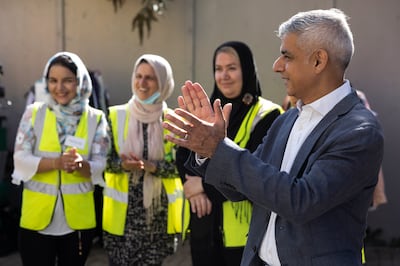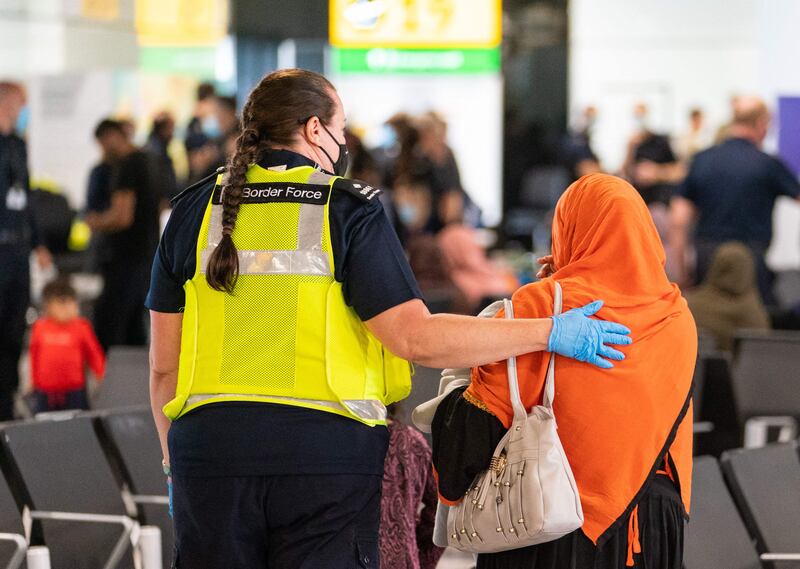Britain is planning to take in 20,000 Afghan refugees over the next five years, in addition to more than 8,000 former support staff flown out of Kabul.
Prime Minister Boris Johnson announced on Monday that everyone resettled from Afghanistan would be offered permanent residency in Britain.
Here are the important details about Afghan refugees in Britain.
Who are the Afghans coming to the UK?
There are two separate groups. The first are those who worked for British troops in Afghanistan, for example as interpreters or security staff.
More than 8,000 of these people and their families were flown out of Kabul last month. They left during an airlift which rescued more than 15,000 in total, including British nationals and diplomatic staff.
Others were left behind when the airlift ended and Britain is “working urgently” to try to extract them, Mr Johnson said.
The prime minister said there were 311 people eligible under the scheme who had yet to come to Britain. Other estimates are higher.
The second route to Britain is the scheme mentioned by Mr Johnson on Monday, which will see 20,000 Afghans taken in over five years. This has not yet started.
These Afghans may have no prior connection to Britain, but be regarded as particularly vulnerable because of their background or political activism.
This is known as the Afghan Citizens’ Resettlement Scheme and is modelled on a similar plan set up for Syrian refugees in 2014.
Who is eligible for the resettlement scheme?
Ministers have yet to reveal the exact criteria but the Home Office says that people who have contributed to civil society or face particular danger from the Taliban will be among those included.
People graded as vulnerable will include those who campaigned for democracy and human rights in Afghanistan. Others may be threatened by the Taliban because of their gender or religion.
The government says it will work with the United Nations and humanitarian agencies to decide who most needs help.
An initial quota of 5,000 people will be taken in during the first year of the scheme.
Critics say the number should be higher. Foreign Secretary Dominic Raab countered that the UK could not take in everyone wanting to flee.
What status will the resettled Afghans have?
All incoming Afghans will obtain permanent residency in Britain, which means they are free to work and study in the UK. This is known as indefinite leave to remain.
Mr Johnson confirmed that the residency offer, which was made to the military evacuees last week, would also apply to the resettlement scheme.
People who come to the UK on other visas must typically wait five years before applying for permanent residency.
Ministers say the resettled Afghans will face the same security checks as other migrants before they can come to Britain.

What else will be offered?
Mr Johnson said adult migrants would receive free English teaching. There will be 300 university scholarships for Afghans across the two schemes.
The prime minister said local authorities would soon receive details of funding for extra school places and long-term accommodation across the UK.
He said the government had received numerous offers of support from charities and families to help resettled Afghans.
A package of measures for the support staff who have already arrived includes a Covid-19 vaccine and help with registering for health care.
Charities and local authorities are gearing up to provide further help. London Mayor Sadiq Khan announced a new fund on Tuesday to assist refugees.
The money raised will help Afghans with mental health support, language assistance and legal or employment advice.
“Today we send a clear message to the world: refugees are welcome here,” Mr Khan said.







